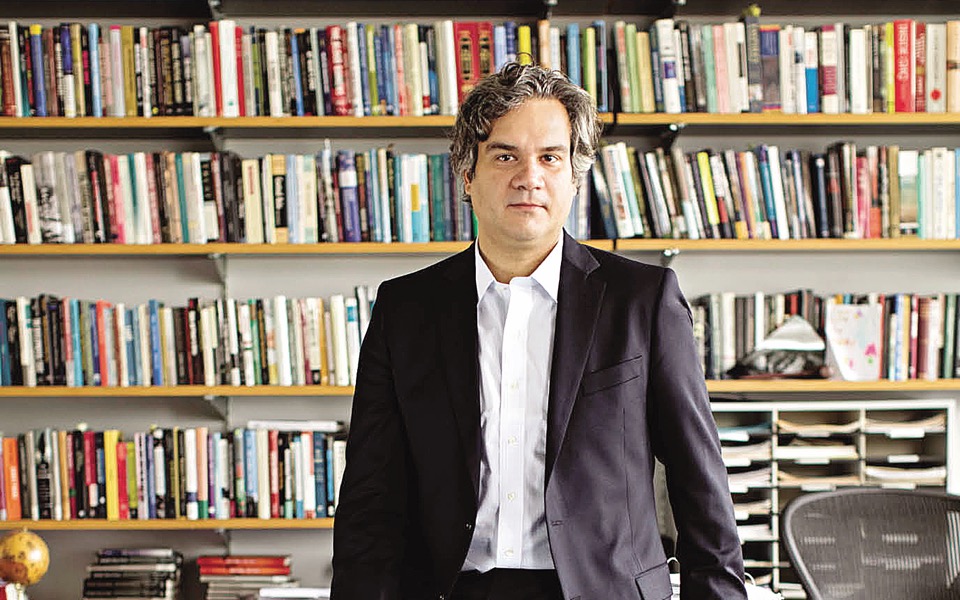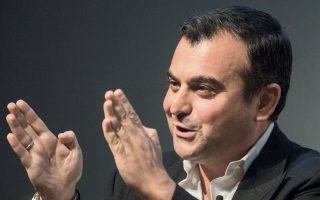Ignoring Turkey is not an option

The United States wants to return to the role it once had, but the world is no longer the same, says Alexander Cooley. The director of Columbia University’s Harriman Institute and professor of political science at Barnard College tells Kathimerini that the degradation of liberal values will continue around the world as the “authoritarian tide” cuts across a number of societies in the West.
When President Joe Biden was elected we were fascinated by the “America is back” slogan. But a year later, we have serious doubts about America’s re-engagement with the world. How would you describe the state of play?
I think the aspiration is for America to come back. I think there has always been an under-appreciation of some fundamental structural shifts in the world. And the international ordering of the world, how it has moved away from the US, and this isn’t just a function of relative power. It’s about the fabric through which international life is conducted, that this fabric used to be controlled almost exclusively by the US and its allies: here in the European Union, Japan in the Pacific.
And, increasingly, this kind of ecosystem of international ordering now has different types of institutions. Some are led by China, some by Russia, some by Middle Eastern countries. And, increasingly, these are playing a bigger role in international affairs. And so the 1990s, when many of our foreign policy and security officials were trained, now seem to me to have been the exceptional decade. That was when there really was only one kind of ordering game in town. And if you weren’t with the program, you were a rogue state. And so that’s the kind of formative experience for a lot of these people. I think “America is back” is a sense that we want to be engaged with the world, we want to shore up alliances. We want to embrace aspects of global governance.
My pessimistic kind of diagnosis is that Biden and his team would like America to be back. They would like to be engaged with these traditional structures. But the world has moved on, and internally we are facing challenges that we haven’t faced before.
In Greece, there’s growing concern about a possible American disengagement from the Eastern Mediterranean. And, I wonder, what are the major points of interest that could keep America engaged in our region?
Figuring out a solution and a strategy for Turkey is a priority. Simple disengagement is not an option. When you’re in the alliance, it creates this level of obligation that not being in puts you in a different sort of category. That’s why I think you saw Biden take the time with Erdogan to deliver messages.
At the same time, you’ve seen a real upgrading of the Greek-US relationship. And that seems to run across the political spectrum here in Greece. It’s supported by both sides of the US. The era when there was kind of this populist backlash against the American presence, when it seemed to be the irritant, is not here anymore. And I think part of that is the perception that Greece also has real security needs in the Mediterranean that can be met, and that they can also take advantage of this, this rupture and this real problem in the US-Turkish partnership. At the same time, finding a workable solution to at least keep cooperation, the air base access at Incirlik – some of the bare bones of what is being done – is important.
Should we expect a decline in liberal values in Western societies, as we are seeing in Eastern Europe, or, say, autocratic states such as Turkey? Should we expect that by the end of this decade we will see a decline in our democracies?
I think you’re already seeing it in terms of some of the quality of our public debate. I think you’re seeing it in terms of the emotive influence, especially of some social media, which is starting to function as a substitute for informed democratic deliberation. I think what we’re realizing now is that many of the so-called democratic victories that we thought we had in the 90s were really circumstances of structural power and socialization.
There’s also a powerful domestic mobilizing device. It wasn’t just the international pressure from Brussels or from Washington. Now that kind of soft power imperative is gone. People like Orban are saying, “Why not be engaged in a multipolar world?” In other words, what sovereignty is to someone like Orban is this kind of picking and choosing of what you want from the outside and sort of rejecting the universality of liberalism. And frankly, one of the reasons that you’ve seen this or the situation in Poland now with the judiciary is that the liberal world has never had a good set of enforcement criteria. They’ve had a good set of accession criteria. If you want to join NATO or the EU, you implement these conditions. Everything from what kind of plastic bag your bread is going to be bagged in to fundamental questions of minority rights and democratic representation. But the sanctioning part is something that the EU did not have methods and tools for.





